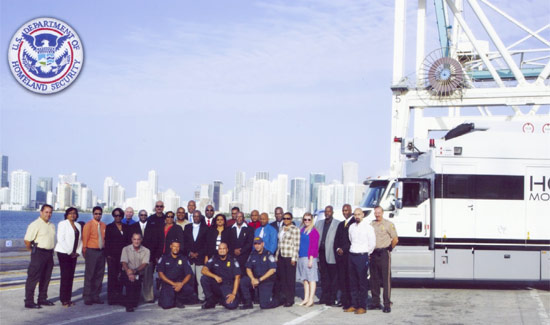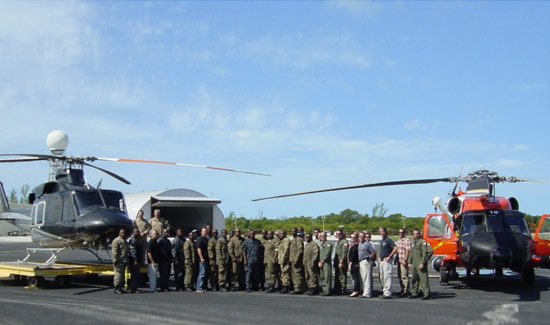
NASSAU, The Bahamas – The Bahamas and the United States recommitted efforts to fighting the illicit drug trade, which has impacted the economic and social lives of both countries for more than three decades.
A Counter-Narcotics and Illegal Migration Joint Task Force Meeting was held Monday, November 8, 2010 at the Paul Farquharson Conference Centre, where both discussed current and new initiatives which both governments have undertaken in an effort to combat the illicit trafficking in and use of drugs.
Present were Deputy Prime Minister and Minister of Foreign Affairs and Immigration the Hon Brent Symonette, Her Excellency Nicole Avant, United States Ambassador to The Bahamas; His Excellency Gordon Wetherell, Governor of the Turks and Caicos Islands and other senior officials.
Mr. Symonette underscored the importance of the meetings and the commitment to the fight against drug trafficking “Our mutual presence here today clearly demonstrates the commitment of our respective governments to continue to comprehensively seek the most effective means of eliminating this threat to national security and our societies as a whole,” he said.
“While our efforts to defeat this complex problem will always require vigilance, the existence for more than 25 years of the Joint Drug Task Force undoubtedly serves as a catalyst through which our governments can further enhance security initiatives in a spirit of mutual cooperation,” he said.
Since the last meeting, in February 2009 both countries have continued to pursue and strengthen their alliance through operational legal frameworks such as Operation Bahamas Turks and Caicos (OPBAT), the Comprehensive Maritime Agreement and the Enduring Friendship Initiative.
For the year 2009, efforts of OPBAT, the DEA and the DEU led to the seizure of 2,660 pounds of cocaine and 77,475 pounds of marijuana.
During that same year, 452 illegal migrants were interdicted in Mathew Town, Inagua. From January to November 2010, joint forces have seized 404 pounds of cocaine, 16,401.50 pounds of marijuana, 35,000 marijuana plants and 53 pounds of hashish. In October 2010, the DEU and DEA seized eight firearms and an assortment of ammunitions.
“Given the corrosive efforts which illicit narcotics trafficking has on a small island developing state such as The Bahamas, my government takes a very serious approach to the fight against this transnational crime. As such, The Bahamas Government remains firmly committed to fulfilling its obligations under international drug control treaties,” Mr. Symonette said.
He noted that the government has embarked and undertaken a number of initiatives in this venture through public awareness campaign, a national drug school survey, and legislative reform.
And in an effort to curtail the effects of the leakage of illicit drug trafficking, The Bahamas National Anti-Drug Secretariat in conjunction with the Bahamas National Drug Council is seeking to identify, prioritise and implement demand reduction programmes from a national perspective through private/public sector partnerships, Mr. Symonette said. He thanked the US Government for the additional funding under the Caribbean Basin Security Initiative (CBSI) for the fiscal year 2010/2011, in the amount of $1.6 million to further enhance cooperative initiatives.
United States Ambassador Avant said that the US continues its support for The Bahamas and the Turks and Caicos Islands participation in OPBAT.
The funds will be used to enhance interdiction capabilities on the water and to improve communications amongst law enforcement personnel. She said the US Government is looking forward to constructing a new $30 million hangar facility on Great Inagua to replace the old OPBAT hangar destroyed by Hurricane Ike in 2008.
The hangar will be a permanent facility for joint US-Bahamas-Turks and Caicos law enforcement operations and its construction will make a substantial contribution to the local economy of Great Inagua.
The Governor of the Turks and Caicos Islands His Excellency Gordon Wetherell said that they have come to appreciate the assistance, which bind the three countries not only in law enforcement but also in areas such as disaster management and recovery and reconstruction efforts.
By Lindsay Thompson
Bahamas Information Services


